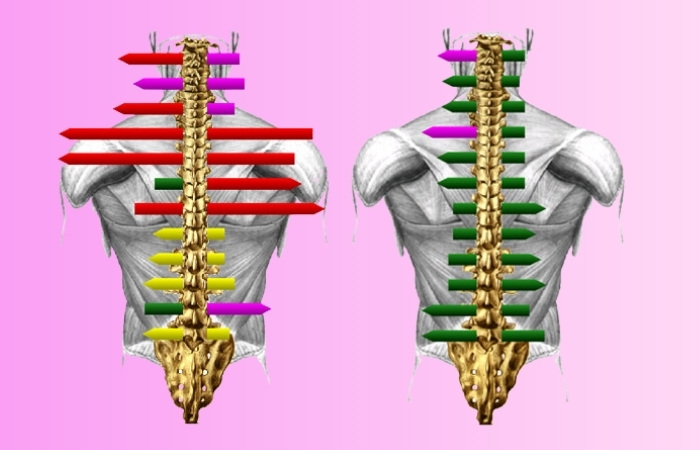What Is A Bad EP Stress Score? Explained!

Stress is a normal part of daily life and is often experienced by individuals of all ages, from students to working adults. However, when stress levels become chronic and elevated, they adversely affect an individual’s health, development, and performance.
The EP Stress Score is a measure used to quantify an individual’s stress levels, considering the severity and frequency of stressful events they have experienced.
This article aims to provide a comprehensive overview of what is a bad Ep Stress Score and its implications on an individual’s well-being. We will explore the relationship between stress scores and health, development, and performance outcomes.
Understanding Stress Scores
Stress scores refer to a numeric representation of an individual’s perceived stress levels. These scores are calculated by adding up the responses to a set of questions that assess different aspects of stress, such as the frequency, severity, and impact of stressful events on an individual’s life.
These scores are often used in research studies to measure the impact of stress on health, development, and performance outcomes. The frequency of stress score readings varies weekly to every 4–6 weeks.
Standard deviations in stress scores are also important, as they indicate significant differences in stress levels between individuals. The relationship between stress scores and health outcomes, such as spinal health and the development of diseases, has been studied extensively.
Stress scores have also been linked to developmental outcomes, such as cognitive development and academic performance, and performance outcomes, such as classification performance. Stress scores influence stressors, including stressful life events, cardiac events, and proximal stressors, such as educational and moderate childhood stress.
What Is A Bad EP Stress Score?
A bad EP stress score indicates that an individual is experiencing high-stress levels, negatively impacting their physical and mental health. The exact definition of a bad EP stress score varies depending on the specific scale or assessment tool used, but generally, a higher score indicates more severe or chronic stress.
Factors such as frequency, intensity, and duration of stressors contribute to a bad EP stress score. Addressing and managing stress is essential to prevent negative health outcomes.
Different Studies On EP Stress Scores
The current study on stress scores aims to investigate the relationship between elevated EP stress scores, spinal health, and subsequent outcomes. It uses a sample of individuals and measures their stress scores, spinal health, and other outcome variables for 4-6 weeks.
Previous studies on stress scores have shown that elevated stress levels are associated with harmful health outcomes, such as severe diseases like coronary artery disease.
Studies have found that stress scores vary based on the type of stressor, such as educational or academic stress. Gender and individual differences have also been found to affect stress scores.
The current study uses a cross-sectional study design, which involves collecting data from a sample of individuals at a specific time. This design allows for examining the relationship between stress scores, spinal health, and outcomes.
But it does not provide information on the causality of the relationships. Future longitudinal studies could explore the causal relationship between stress scores, spinal health, and subsequent outcomes over an extended period.
Health Outcomes Because Of EP Score
Elevated EP stress, a chronic stress marker, negatively affects spinal health. Research has shown that individuals with elevated EP stress are more likely to report back pain, stiffness, and other symptoms related to spinal health. Additionally, high EP stress has been associated with changes in spinal muscle activity and biomechanics that contribute to the development of spinal disorders.
Range of motion and muscle activity readings provide valuable insights into the effects of stress on the body. Individuals with high-stress levels have decreased range of motion and increased muscle tension, contributing to the development of musculoskeletal disorders.
Interventions designed to reduce stress, such as relaxation techniques and exercise, improve the range of motion and reduce muscle tension.
Chronic stress is linked to various diseases and health outcomes. For example, stress has been associated with an increased risk of cardiovascular disease, type 2 diabetes, and autoimmune disorders.
Also, stress negatively affects mental health, including anxiety and depression. Stress exacerbates symptoms of existing health conditions, such as chronic pain and inflammatory bowel disease.
Therefore, recognize the relationship between stress and disease and to develop strategies to reduce stress and promote overall health and well-being.
Developmental Outcomes Of EP Stress Score On Infants
Studies have shown that high stress levels negatively impact children’s cognitive development, including impairments in memory, attention, and executive function. Chronic stress during early childhood also permanently changes the brain’s structure and function.
Infants who experience high levels of stress, such as those in institutional care, have delayed or altered developmental trajectories, particularly in areas such as language development, motor skills, and social-emotional development.
High levels of educational stress, such as pressure to perform well on exams or to meet academic expectations, have been associated with negative academic outcomes, including lower grades, test scores, and graduation rates.
However, moderate levels of stress actually enhance academic performance, suggesting that the relationship between stress and academic outcomes is complex and multifaceted.
Read Also: Why Is Good Posture Important For Physical And Mental Health?
Performance Outcomes Of EP Stress Score
Stress significantly impacts cognitive performance, including classification tasks that involve identifying patterns or making decisions based on complex information.
High levels of stress impair cognitive function, leading to reduced accuracy and slower reaction times. Studies have found that individuals with high stress scores perform worse on classification tasks than those with low stress scores. Chronic stress leads to long-term cognitive decline and impairments in decision-making abilities.
Individuals with high stress scores experience a range of performance differences compared to those with low stress scores. These differences manifest in various aspects of performance, such as academic, athletic, or professional performance.
For example, individuals with high stress scores experience decreased motivation, increased anxiety, and decreased concentration, leading to lower levels of performance across domains. In contrast, individuals with low stress scores experience higher levels of motivation, better concentration, and improved performance.
Stressful Events And Proximal Stressors Their Relation And Impact On EP Stress Score
There is a significant relationship between stressful life events and stress scores. Individuals who have experienced negative life events such as divorce, the death of a loved one, or job loss tend to have higher stress scores than those who have not experienced such events.
Proximal stressors such as academic stress, work-related stress, and interpersonal conflict have significantly impacted stress scores. Individuals who experience these stressors tend to have higher stress scores than those who do not.
Moderate childhood stressors such as parental divorce, frequent moves, or financial difficulties have been shown to have a lasting impact on stress scores into adulthood.
Gender And Individual Differences In Ep Stress Score
There is evidence to suggest that there are gender differences in stress levels, with women reporting higher levels of stress than men in many studies. However, the extent of these differences varies depending on the population studied and the specific stressors assessed.
Many factors contribute to differences in stress levels, including personality traits, coping styles, social support, and life experiences. Some individuals are more resilient to stress than others, while others are more susceptible to stress-related health problems.
Maternal cortisol levels during pregnancy are associated with stress levels in offspring. Higher levels of maternal cortisol have been linked to higher levels of stress in children and adolescents. However, the exact mechanisms underlying this relationship are not yet fully understood.
Final Words
An elevated EP stress score indicates a range of negative outcomes for an individual’s health, development, and performance. This article has discussed what is a bad EP stress score and the different factors that can contribute to an elevated EP stress score, including stressful events, proximal stressors, gender differences, and individual differences.
Understanding what constitutes a bad EP stress score and the potential consequences can help individuals recognize when they may need to take action to reduce their stress levels. This article can serve as a helpful guide for individuals who want to understand their stress levels better and take steps to manage their stress.
Read More:



